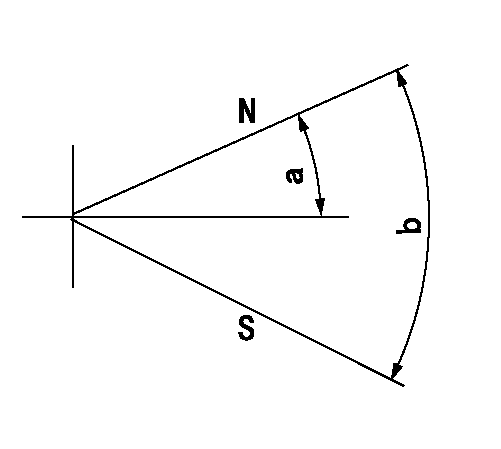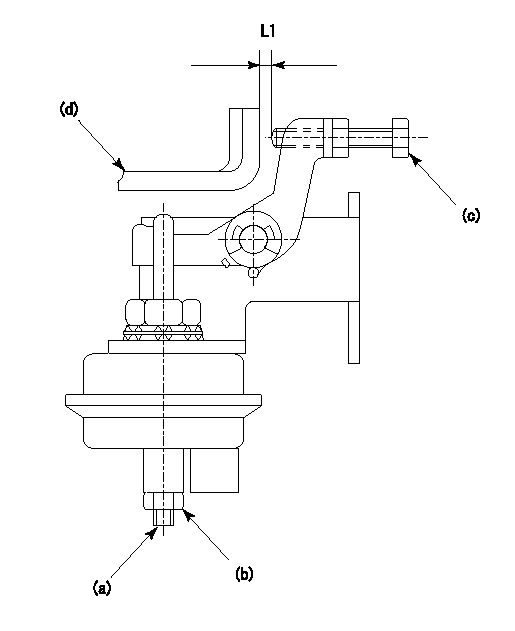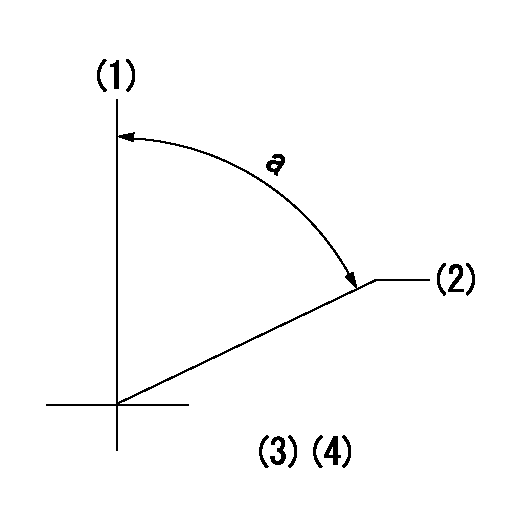Information injection-pump assembly
BOSCH
9 400 613 661
9400613661
ZEXEL
101401-2291
1014012291
HINO
220008080A
220008080a

Rating:
Service parts 101401-2291 INJECTION-PUMP ASSEMBLY:
1.
_
6.
COUPLING PLATE
7.
COUPLING PLATE
8.
_
9.
_
11.
Nozzle and Holder
236001981A
12.
Open Pre:MPa(Kqf/cm2)
19.6(200)
15.
NOZZLE SET
Cross reference number
BOSCH
9 400 613 661
9400613661
ZEXEL
101401-2291
1014012291
HINO
220008080A
220008080a
Zexel num
Bosch num
Firm num
Name
101401-2291
9 400 613 661
220008080A HINO
INJECTION-PUMP ASSEMBLY
W04C-TF * K
W04C-TF * K
Calibration Data:
Adjustment conditions
Test oil
1404 Test oil ISO4113 or {SAEJ967d}
1404 Test oil ISO4113 or {SAEJ967d}
Test oil temperature
degC
40
40
45
Nozzle and nozzle holder
105780-8140
Bosch type code
EF8511/9A
Nozzle
105780-0000
Bosch type code
DN12SD12T
Nozzle holder
105780-2080
Bosch type code
EF8511/9
Opening pressure
MPa
17.2
Opening pressure
kgf/cm2
175
Injection pipe
Outer diameter - inner diameter - length (mm) mm 6-2-600
Outer diameter - inner diameter - length (mm) mm 6-2-600
Overflow valve
134424-0920
Overflow valve opening pressure
kPa
162
147
177
Overflow valve opening pressure
kgf/cm2
1.65
1.5
1.8
Tester oil delivery pressure
kPa
157
157
157
Tester oil delivery pressure
kgf/cm2
1.6
1.6
1.6
Direction of rotation (viewed from drive side)
Right R
Right R
Injection timing adjustment
Direction of rotation (viewed from drive side)
Right R
Right R
Injection order
1-3-4-2
Pre-stroke
mm
4.3
4.27
4.33
Rack position
Point A R=A
Point A R=A
Beginning of injection position
Drive side NO.1
Drive side NO.1
Difference between angles 1
Cal 1-3 deg. 90 89.75 90.25
Cal 1-3 deg. 90 89.75 90.25
Difference between angles 2
Cal 1-4 deg. 180 179.75 180.25
Cal 1-4 deg. 180 179.75 180.25
Difference between angles 3
Cyl.1-2 deg. 270 269.75 270.25
Cyl.1-2 deg. 270 269.75 270.25
Injection quantity adjustment
Adjusting point
-
Rack position
11.3
Pump speed
r/min
900
900
900
Average injection quantity
mm3/st.
83
81
85
Max. variation between cylinders
%
0
-3
3
Basic
*
Fixing the rack
*
Standard for adjustment of the maximum variation between cylinders
*
Injection quantity adjustment_02
Adjusting point
H
Rack position
9+-0.5
Pump speed
r/min
315
315
315
Average injection quantity
mm3/st.
9
7.5
10.5
Max. variation between cylinders
%
0
-15
15
Fixing the rack
*
Standard for adjustment of the maximum variation between cylinders
*
Injection quantity adjustment_03
Adjusting point
A
Rack position
R1(11.3)
Pump speed
r/min
900
900
900
Average injection quantity
mm3/st.
83
82
84
Basic
*
Fixing the lever
*
Boost pressure
kPa
22.7
22.7
Boost pressure
mmHg
170
170
Injection quantity adjustment_04
Adjusting point
B
Rack position
R1-0.1
Pump speed
r/min
1500
1500
1500
Average injection quantity
mm3/st.
91
87
95
Fixing the lever
*
Boost pressure
kPa
22.7
22.7
Boost pressure
mmHg
170
170
Injection quantity adjustment_05
Adjusting point
C
Rack position
R2-(1.2)
Pump speed
r/min
600
600
600
Average injection quantity
mm3/st.
37.6
33.6
41.6
Fixing the lever
*
Boost pressure
kPa
0
0
0
Boost pressure
mmHg
0
0
0
Injection quantity adjustment_06
Adjusting point
D
Rack position
11.2
Pump speed
r/min
300
300
300
Average injection quantity
mm3/st.
49.5
47.5
51.5
Fixing the lever
*
Boost pressure
kPa
0
0
0
Boost pressure
mmHg
0
0
0
Injection quantity adjustment_07
Adjusting point
E
Rack position
R2(R1-0.
3)
Pump speed
r/min
600
600
600
Average injection quantity
mm3/st.
65.2
61.2
69.2
Fixing the lever
*
Boost pressure
kPa
22.7
22.7
Boost pressure
mmHg
170
170
Injection quantity adjustment_08
Adjusting point
I
Rack position
-
Pump speed
r/min
100
100
100
Average injection quantity
mm3/st.
109
99
119
Fixing the lever
*
Boost pressure
kPa
0
0
0
Boost pressure
mmHg
0
0
0
Boost compensator adjustment
Pump speed
r/min
300
300
300
Rack position
11.2
Boost pressure
kPa
2
0
4
Boost pressure
mmHg
15
15
30
Boost compensator adjustment_02
Pump speed
r/min
300
300
300
Rack position
R1+1.1
Boost pressure
kPa
9.3
9.3
9.3
Boost pressure
mmHg
70
70
70
Timer adjustment
Pump speed
r/min
950--
Advance angle
deg.
0
0
0
Load
1/4
Remarks
Start
Start
Timer adjustment_02
Pump speed
r/min
900
Advance angle
deg.
0.3
Load
1/4
Timer adjustment_03
Pump speed
r/min
(1000)
Advance angle
deg.
1.25
0.65
1.25
Load
4/4
Timer adjustment_04
Pump speed
r/min
1200
Advance angle
deg.
1.25
0.65
1.25
Load
3/4
Timer adjustment_05
Pump speed
r/min
1500
Advance angle
deg.
4.5
4.2
4.8
Load
4/4
Remarks
Finish
Finish
Test data Ex:
Governor adjustment

N:Pump speed
R:Rack position (mm)
(1)Torque cam stamping: T1
(2)Tolerance for racks not indicated: +-0.05mm.
(3)Boost compensator stroke: BCL
(4)Idle increase set point (air cylinder's negative pressure supply: P1)
----------
T1=D20 BCL=(1.2)+-0.1mm P1=392+98kPa(4+1kgf/cm2)
----------
----------
T1=D20 BCL=(1.2)+-0.1mm P1=392+98kPa(4+1kgf/cm2)
----------
Speed control lever angle

F:Full speed
I:Idle
(1)Stopper bolt set position 'H'
----------
----------
a=21.5deg+-5deg b=39deg+-3deg
----------
----------
a=21.5deg+-5deg b=39deg+-3deg
Stop lever angle

N:Pump normal
S:Stop the pump.
----------
----------
a=13deg+-5deg b=40deg+-5deg
----------
----------
a=13deg+-5deg b=40deg+-5deg
0000001501 ACTUATOR

(a) Screw
(B) Nut
(c) set bolt
(d) control lever
1. Actuator adjustment procedure
(1)Position the control lever (d) in the idling position.
(2)Set the clearance between the control lever (d) and the set bolt (c) to approx. L1.
(3)Loosen the nut (b) and fully tighten the screw (a).
(4)Set the pump speed at N1and measure the rack position when negative pressure P1 is applied to the actuator.
(5)Loosen screw (a) and fix the nut (b) when the pump speed is N2 and the rack position is R1.
(6)Confirm that control lever (d) returns to the idling position at actuator negative pressure 0.
(7)Repeat procedures (4) to (6) several times and confirm that the control lever (d) moves smoothly.
----------
L1=2mm R1=8.5~8.7mm P1=66.7kPa(500mmHg) N1=475r/min N2=475r/min
----------
----------
L1=2mm R1=8.5~8.7mm P1=66.7kPa(500mmHg) N1=475r/min N2=475r/min
----------
Timing setting

(1)Pump vertical direction
(2)Position of gear's standard threaded hole at No 1 cylinder's beginning of injection
(3)-
(4)-
----------
----------
a=(70deg)
----------
----------
a=(70deg)
Information:
Above 16°C (60°F)
Consult the "Operation" (Operator's) Guide for before starting checks. 1. Turn on the scraper disconnect switch. 2. Move the scraper governor to just past ENGINE STOPPED detent. 3. Push in and turn the start switch to START. Release the switch when the engine starts.
After every 30 seconds of cranking, allow 2 minutes for the starting motor to cool.
4. If the engine oil pressure gauge doesn't register within 10 seconds, push the governor control to the ENGINE STOPPED position to stop the engine. Have corrections made.5. Keep the engine at low idle until the systems are warm.6. Watch all gauges and indicators for correct readings before moving the machine.16°C (60°F) to -12°C (10°F)
1. Follow the steps under "Above 16°C (60°F)."
If the engine does not start after two attempts, use starting fluid. This will prevent excessive battery drain and starting motor overheating.
2. Use starting fluid by pushing the button under the start switch, at 2 second intervals, while cranking the engine. See "Ether Aids" under "Cold Weather Starting Aids."-12°C (10°F) to -26°C (-15°F)
1. Follow the steps under "Above 16°C (60°F)."2. Coolant heaters are required.3. An external battery source may be required if the battery charge is not maintained. See "Boost Starting" under "Cold Weather Starting Aids."4. Starting fluid is required. See "Ether Aids" under "Cold Weather Starting Aids."Below -26°C (-15°F)
1. Follow the steps under "Above 16°C (60°F)."2. Coolant heaters are required.3. An external battery source may be required. See "Boost Starting" under "Cold Weather Starting Aids."4. Starting fluid is required. See "Ether Aids" under "Cold Weather Starting Aids."5. Special lubricants are required. Consult your Caterpillar dealer or refer to Caterpillar Form Number SEBU5338, "Operation, Lubrication and Maintenance Guide for Cold Weather Operation."Starting Aids
Winter Oils
The use of SAE10W viscosity oil in the compartments listed on the chart below will aid in cold weather starting.
Use SAE10W oil only in the temperature ranges indicated.
At lower than above temperatures consult your Caterpillar dealer or refer to the "Operation, Lubrication and Maintenance Guide for Cold Weather Operation," Caterpillar Form Number SEBU5338, for the correct lubricants to use.Ether Aids
Ether is a poison and is flammable.Use it only in well ventilated areas.Use it with care to avoid fires.Avoid breathing the ether vapors, or repeated contact of ether with skin.Do not use ether in environments above 90°C (200°F).
Ether is to be used for cold starting purposes only. Use ether only while cranking the engine. Use it sparingly. Excessive ether can cause piston and ring damage.
Push the button only while cranking the engine.A metered amount of starting fluid (ether) is released each time the button is pushed.After pushing the button, allow 2 seconds before pushing it again.Continue the use of starting fluid every 2 seconds after the engine starts, until it is running smoothly.Batteries
Keep batteries charged to a corrected specific gravity of 1.250 or above. Otherwise, an external electrical source may be required.Boost Starting
Do not allow cable ends to contact each other or the machine.Prevent sparks near the batteries. They could cause battery vapors (hydrogen) to explode.
When
Consult the "Operation" (Operator's) Guide for before starting checks. 1. Turn on the scraper disconnect switch. 2. Move the scraper governor to just past ENGINE STOPPED detent. 3. Push in and turn the start switch to START. Release the switch when the engine starts.
After every 30 seconds of cranking, allow 2 minutes for the starting motor to cool.
4. If the engine oil pressure gauge doesn't register within 10 seconds, push the governor control to the ENGINE STOPPED position to stop the engine. Have corrections made.5. Keep the engine at low idle until the systems are warm.6. Watch all gauges and indicators for correct readings before moving the machine.16°C (60°F) to -12°C (10°F)
1. Follow the steps under "Above 16°C (60°F)."
If the engine does not start after two attempts, use starting fluid. This will prevent excessive battery drain and starting motor overheating.
2. Use starting fluid by pushing the button under the start switch, at 2 second intervals, while cranking the engine. See "Ether Aids" under "Cold Weather Starting Aids."-12°C (10°F) to -26°C (-15°F)
1. Follow the steps under "Above 16°C (60°F)."2. Coolant heaters are required.3. An external battery source may be required if the battery charge is not maintained. See "Boost Starting" under "Cold Weather Starting Aids."4. Starting fluid is required. See "Ether Aids" under "Cold Weather Starting Aids."Below -26°C (-15°F)
1. Follow the steps under "Above 16°C (60°F)."2. Coolant heaters are required.3. An external battery source may be required. See "Boost Starting" under "Cold Weather Starting Aids."4. Starting fluid is required. See "Ether Aids" under "Cold Weather Starting Aids."5. Special lubricants are required. Consult your Caterpillar dealer or refer to Caterpillar Form Number SEBU5338, "Operation, Lubrication and Maintenance Guide for Cold Weather Operation."Starting Aids
Winter Oils
The use of SAE10W viscosity oil in the compartments listed on the chart below will aid in cold weather starting.
Use SAE10W oil only in the temperature ranges indicated.
At lower than above temperatures consult your Caterpillar dealer or refer to the "Operation, Lubrication and Maintenance Guide for Cold Weather Operation," Caterpillar Form Number SEBU5338, for the correct lubricants to use.Ether Aids
Ether is a poison and is flammable.Use it only in well ventilated areas.Use it with care to avoid fires.Avoid breathing the ether vapors, or repeated contact of ether with skin.Do not use ether in environments above 90°C (200°F).
Ether is to be used for cold starting purposes only. Use ether only while cranking the engine. Use it sparingly. Excessive ether can cause piston and ring damage.
Push the button only while cranking the engine.A metered amount of starting fluid (ether) is released each time the button is pushed.After pushing the button, allow 2 seconds before pushing it again.Continue the use of starting fluid every 2 seconds after the engine starts, until it is running smoothly.Batteries
Keep batteries charged to a corrected specific gravity of 1.250 or above. Otherwise, an external electrical source may be required.Boost Starting
Do not allow cable ends to contact each other or the machine.Prevent sparks near the batteries. They could cause battery vapors (hydrogen) to explode.
When
Have questions with 101401-2291?
Group cross 101401-2291 ZEXEL
Hino
Hino
Hino
Hino
Hino
Hino
Hino
Hino
Hino
101401-2291
9 400 613 661
220008080A
INJECTION-PUMP ASSEMBLY
W04C-TF
W04C-TF